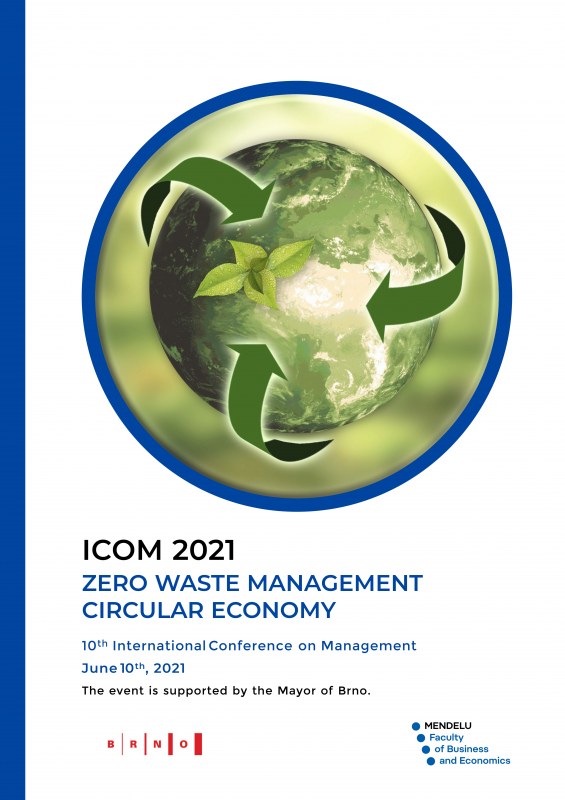
DOI: 10.11118/978-80-7509-820-7-0405
SHARED ACCOMMODATION: CURRENT STATE AND POSSIBILITIES OF ITS DEVELOPMENT ON THE ISLAND OF MADEIRA
- Petr JANEČEK, Alena PUCOVÁ
Purpose: The aim of the paper is to analyse the current state and identify the potential for the development of shared accommodation in Madeira Island. Next goal is to identify barriers of its development based on the results of research about this type of accommodation and reduce them.
Design/methodology/approach: The literature review offers the basic understanding about information about sharing economy, but bigger focus is then on shared accommodation. The literature review also targets on the regulation of AirBnB in the world and the situation with AirBnB in the world. The research itself was divided into two sections. The first section is based on online questionings and the second on individual interviews. Online questionnaire survey is split up into two parts, the first part is focused on visitors from all over the world, who use shared accommodation, trying to find out, how travellers evaluate this specific type of accommodation and the second part is focused on providers of shared accommodation on the island of Madeira. To find out more opinions about shared accommodation, 10 individuals were approached. The individuals were asked questions, which were similar to the first survey, but more in depth. Respondents were asked for reasons and any thoughts about AirBnB. The data from both surveys were processed in program PSPP and Microsoft Excel.
Findings: Based on questionnaires it turned out that in many ways, answers of demand and supply are similar. Most respondents found out about AirBnB on the internet, the majority of both groups think that AirBnB is better than hotels and that AirBnB helps to develop tourism in the area but also that AirBnB is turning mainly into businesses and does not meet the main purpose of shared accommodation. The results also show that people are greatly influenced by reviews and without them, the chance of booking the accommodation is getting lower. Other answers indicate that most visitors prefer separated accommodations and most providers provide the entire homes with full privacy, so it collaborates very well. The research did not show significant difference in answers between genders. Respondents of demand shared their negative experiences such as noise, smell, not good communication with the host, not clean place but also positive experiences such as a little gift, clean place, reasonable price, kind host etc. The negative findings were recorded as barriers of the development and some tips how to improve their offer were suggested to providers, Tips how to behave when choosing and staying in AirBnB were also suggested to visitors. Individual interviews helped to understand why people prefer AirBnB rather than hotels and it is mostly because of privacy, the kitchen area and the unique experience.
Research limitations: The biggest limit is the focus on local environment of Island of Madeira that could be specific then overall worldwide environment. The second limit is based in research methodology. It was used online survey and research sample is limited (157 users and 30 providers of shared accommodation). The last limitation is time of research. The conditions of tourism and also shared accommodation are very influenced by COVID-19 pandemic.
Klíčová slova: AirBnB, shared economy, shared accommodation, Madeira Island
stránky: 405-417, Publikováno: 2021, online: 2021
Reference
- Airbnb. 2018. About Us - Airbnb Press Room. Airbnb News. Airbnb [online]. Available at: https://press.airbnb.com/en-uk/about-us
- AirDNA. c2015-2018. AirDNA MarketMinder. AirDNA: Short-Term Vacation Rental Data. AirDNA [online] Available at: https://www.airdna.co/vacation-rental-data/app/us/california/san-francisco/overview
- GfK Czech Republic. 2017. Data.Brno. Analýza turistické poptávky města Brna. Data.Brno [online] Available at: https://data.brno.cz/analyza-turisticke-poptavky-mesta-brna/
- Krajcik, V., Kljucnikov, A., Rihova, E. 2019. Innovative Sharing Economy´s Business Models in Tourism: Case of Airbnb in Prague. Marketing and Management of Innovations, 2: 108-117. DOI: http://doi.org/10.21272/mmi.2019.2-10
 Přejít k původnímu zdroji...
Přejít k původnímu zdroji... - Heath, S., Davies, K., Edwards, G., Scicluna, R. 2017. Shared Housing, Shared Lives: Everyday Experiences Across the Lifecourse. Routledge.
- Heckman, L. 2017. The Airbnb Story: How Three Ordinary Guys Disrupted an Industry. Made Billions...and Created Plenty of Controversy. Library Journal, 142(5): 126-126.
- Hübscher, M., Schulze, J., zur Lage, F., Ringel, J. 2020. The Impact of Airbnb on a Non-turistic city. A case study of short-term rentals in Santa Cruz De Tenerife (Spain). Erdkunde, 74(3): 191-204. DOI: https://doi.org/10.3112/erdkunde.2020.03.03
 Přejít k původnímu zdroji...
Přejít k původnímu zdroji... - Chamusca, P., Fernandes, J-R., Carvalho, L., Mendes, T. 2019. The role of Airbnb creating a "new"- old city centre: facts, problems and controversies in Porto. Boletín de la Asociación de Geógrafos Espanoles, 83: 2820. DOI: http://doi.org/10.21138/bage.2820
 Přejít k původnímu zdroji...
Přejít k původnímu zdroji... - Shatford, S. c2015-2018. The Biggest Airbnb Vacation Rental Cities in The World -AirDNA. AirDNA: Short-Term Vacation Rental Data & Analytics. AirDNA [online]. Available at: https://www.airdna.co/blog/biggest_airbnb_cities_in_the_world
- Siuskaite, D., Pilinkiene, V., Zvirdauskas, D. 2019. The Conceptualization of the Sharing Economy as a Business Model. Engineering Economics, 30(3): 373-381. DOI: https://doi.org/10.5755/j01.ee.30.3.21253
 Přejít k původnímu zdroji...
Přejít k původnímu zdroji... - Statista. 2019. Airbnb. Statista. Available at: https://www.statista.com/study/24578/airbnb-statista-dossier/
- Stemler, A. 2016. Betwixt and Between: Regulating the Shared Economy. Fordham Urban Law Journal, 43(1): 2.
- Sundararajan, A. 2016. The sharing economy: the end of employment and the rise of crowd-based capitalism. Cambridge, Massachusetts: The MIT Press.
- Surugiu, C., Surugiu, M., Mazilescu, R. 2019. Sharing Economy, ICT and Digital Marketing Impact on the Recent Tourism Developments. Hyperion International Journal of Econophysics, 12(1): 167-175.


